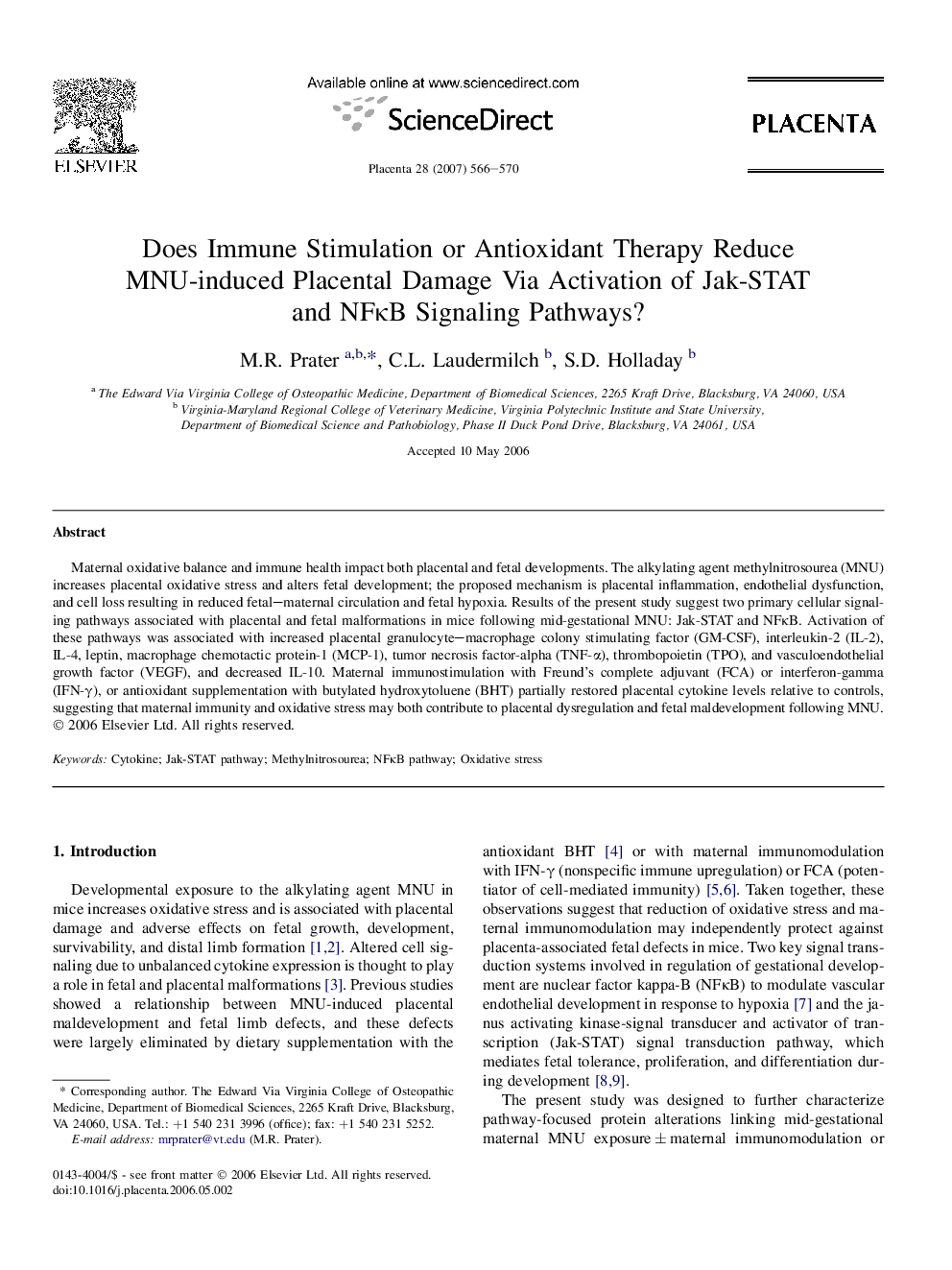| Article ID | Journal | Published Year | Pages | File Type |
|---|---|---|---|---|
| 2790026 | Placenta | 2007 | 5 Pages |
Maternal oxidative balance and immune health impact both placental and fetal developments. The alkylating agent methylnitrosourea (MNU) increases placental oxidative stress and alters fetal development; the proposed mechanism is placental inflammation, endothelial dysfunction, and cell loss resulting in reduced fetal–maternal circulation and fetal hypoxia. Results of the present study suggest two primary cellular signaling pathways associated with placental and fetal malformations in mice following mid-gestational MNU: Jak-STAT and NFκB. Activation of these pathways was associated with increased placental granulocyte–macrophage colony stimulating factor (GM-CSF), interleukin-2 (IL-2), IL-4, leptin, macrophage chemotactic protein-1 (MCP-1), tumor necrosis factor-alpha (TNF-α), thrombopoietin (TPO), and vasculoendothelial growth factor (VEGF), and decreased IL-10. Maternal immunostimulation with Freund's complete adjuvant (FCA) or interferon-gamma (IFN-γ), or antioxidant supplementation with butylated hydroxytoluene (BHT) partially restored placental cytokine levels relative to controls, suggesting that maternal immunity and oxidative stress may both contribute to placental dysregulation and fetal maldevelopment following MNU.
